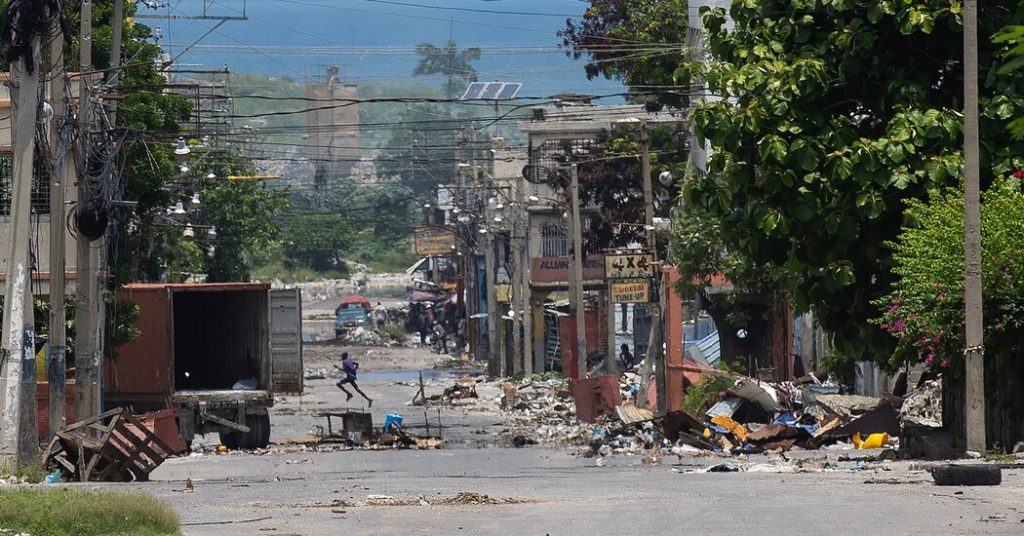The humanitarian crisis in Haiti is once again in the spotlight after gangs attacked an American missionary group, resulting in the deaths of two Americans and a Haitian director. The violence and gang activity in Haiti have escalated since the assassination of President Jovenel Moïse in 2021, leading to a collapsed state and the proliferation of gangs. Kenyan-led forces are set to arrive in Haiti to confront the gangs and help stabilize the country, funded by the United States and international community.
Gangs in Haiti now control about 90 percent of the capital, Port-au-Prince, effectively making it an open-air prison where movement is restricted by violence and insecurity. Gang-related violence has killed over 1,000 people from March to May 2020, with many others being kidnapped or displaced. The current situation has left over 160,000 people displaced in the capital’s metropolitan area, with increasing levels of poverty, malnutrition, and violence.
Aid groups have been present in Haiti for decades, with a heightened presence after the devastating 2010 earthquake. While aid projects aim to provide assistance, some experts argue that they have undermined the state’s capacity, contributing to the current instability in the country. The international community has poured billions of dollars into Haiti, but the situation has deteriorated, with allegations of corruption and mismanagement.
Missionary groups in Haiti have faced controversy, with some being accused of illegal activities, including trafficking children. While they have launched successful projects, such as feeding and educating children, critics argue that they perpetuate dependency on foreign aid and fail to build local capacity. The dangerous environment in Haiti has also made aid work challenging, with gangs targeting aid workers and occupying distribution centers.
Despite the dangers, aid groups continue to operate in Haiti, acknowledging the ongoing need for humanitarian assistance. The recent killings of American missionaries are likely to result in increased security measures and costs for aid organizations. They have had to adapt their operations to provide security to staff and navigate the challenges posed by violence and gang control over vital infrastructure. The fear of kidnapping and violence looms over aid workers in Haiti, but they remain committed to providing assistance in the face of danger.


